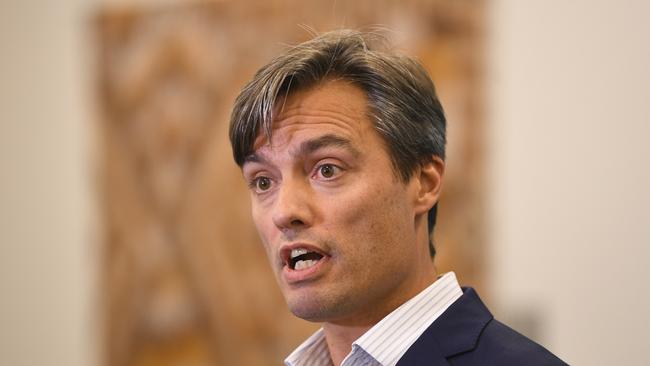Coronavirus: Push to make us an eradication nation
The federal government has raised the prospect Australia could eliminate coronavirus from many parts of the country.

The federal government has raised the prospect Australia could eliminate coronavirus from many parts of the country as a biosecurity expert urges the nation’s leaders to fully stamp it out for the long-term good of the economy.
Commonwealth Deputy Chief Medical Officer Nick Coatsworth said although suppression of the virus remained the government’s policy, eradication might be achievable.
“The aim is suppression,” Dr Coatsworth said. “The reality is that we … as the Australian community are doing an amazing job in that suppression strategy to the extent there are some states that have reported zero new cases for several days now.
“Eradication, which basically means in a geographical area there are no reported cases or you’ve effectively eliminated coronavirus … could be an outcome of an excellent suppression strategy.”
Dr Coatsworth said achieving zero cases in the long term would be difficult. “The problem is we just have to acknowledge the non-immune state of our population and … how rapidly coronavirus can spread.
“And so for all of those reasons I think we are on a strategy of suppression. A magnificent outcome would be geographic eradication in certain parts of Australia.”
Some experts are urging the government not to ease social-distancing measures until the virus is effectively eliminated from the country, saying the costs to the economy of a long-term suppression strategy are greater.
Professor of environment economics and biosecurity at the University of Melbourne Tom Kompas said the economy would recover sooner if lockdowns remained until the virus was almost entirely eliminated from Australia. “At the moment, I’m still in favour of an elimination strategy,” Professor Kompas said. “If it can be done by the end of May, and it looks like it’s headed that way, the economics are far in favour of that.
“You hibernate the economy, you shut it down for a short period of time, and then you’re able to transition back to a full economy much more quickly. If you try and take a halfway house, if you try and say let’s keep infections low, then there’s the question of how low, and will you get additional outbreaks? And then you’re back into stage three restrictions before you know it — and then the economy’s in trouble.”
La Trobe University epidemiologist Hassan Vally said elimination of the virus would remain challenging in the event there were significant asymptomatic cases of infection.
“We don’t know how difficult it is to eliminate the virus and whether it’s possible, and some of that is dependent on the extent to which there is asymptomatic transmission which we haven’t picked up,” Professor Vally said.
Shane Thomas, a professor at the Australian National University’s Research School of Population Health, said Australia showed promise of being able to control the virus.
“Control of COVID infections to lower levels, followed perhaps by elimination in certain geographic areas, may be possible,” he said. “Elimination will almost certainly require … a successful vaccine or vaccines and widespread vaccination or other forms of management. With … travel and mobility within the human population, this is going to be very difficult. We are already seeing early signs of effective control.”




To join the conversation, please log in. Don't have an account? Register
Join the conversation, you are commenting as Logout